Providing Best Services in Huntsville, AL
Providing Best Landscaping Services in Huntsville, AL

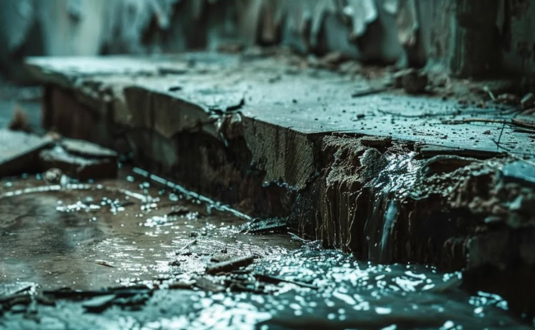

.webp)
How Poor Drainage Can Lead to Foundation Issues
Poor drainage causes foundation problems by allowing excess water to collect around your home. This water makes soil expand and contract, leading to foundation cracks, shifting, and uneven settling. Water buildup also increases hydrostatic pressure against basement walls, causing leaks and structural damage. Over time, poor drainage can lead to mold growth, slab heaving, and soil erosion.
The Relationship Between Poor Drainage and Foundation Integrity
Poor drainage around a home's perimeter can lead to serious foundation issues. Implementing drainage solutions huntsville can help mitigate these problems. As water accumulates near the foundation, it can cause soil expansion and contraction, putting pressure on the structure. Utilizing hardscaping huntsville al techniques can also reduce moisture accumulation, thereby preventing the cycle of moisture changes that weaken the foundation over time.
Excessive moisture from inadequate drainage can seep into the foundation, causing cracks and deterioration. In areas prone to drought, the soil may shrink away from the foundation, creating voids that compromise structural integrity. Proper drainage solutions huntsville are crucial to maintain foundation stability. Additionally, hardscaping huntsville al can enhance the overall landscape while addressing drainage concerns.
High humidity levels resulting from poor drainage solutions huntsville can also affect the foundation. Moisture can penetrate concrete, leading to corrosion of reinforcing steel and weakening of the overall structure. Effective drainage systems help regulate soil moisture and protect against these issues. Incorporating hardscaping huntsville al can further enhance drainage and overall landscape resilience.
Root systems of nearby plants can exacerbate drainage problems. As roots grow, they can block drainage paths and absorb moisture from the soil, causing further instability. Regular maintenance of landscaping and drainage solutions huntsville is essential to prevent root-related foundation damage. Additionally, incorporating hardscaping huntsville al and utilizing landscaping installation huntsville al can enhance your property's resilience.
How Poor Drainage Can Lead to Foundation Issues

Poor drainage can significantly impact foundation quality through various mechanisms. Implementing drainage solutions huntsville can mitigate these issues. This section explores how excess water causes soil movement, the effects of hydrostatic pressure on foundations, consequences of slab heave, and moisture-related problems. Additionally, proper landscaping installation huntsville al can help manage water flow around the property. Understanding these issues is crucial for homeowners, as they can lead to stress on piers, clay expansion, and wood deterioration due to increased water content.
Understanding Soil Movement Caused by Excess Water
Excess water from poor drainage saturates the soil surrounding a home's foundation, causing it to expand and contract. This movement exerts pressure on concrete slabs and crawl space foundations, potentially leading to cracks and structural instability. In Huntsville, AL, huntsville al landscaping design plays a crucial role in preventing these issues by directing water away from the foundation. Additionally, drainage solutions huntsville ensure that excess water is effectively managed to protect the property's structural integrity.
Soil movement can also create voids beneath the foundation, compromising its support. To combat this, homeowners may need to invest in basement waterproofing or install a pump system to remove excess water. These measures help maintain soil stability and protect the foundation from water-related damage.
Exploring Hydrostatic Pressure Effects on Foundations
Hydrostatic pressure from poor drainage significantly impacts foundation integrity. As water accumulates around the foundation, it exerts force on basement walls and crawl spaces, potentially leading to cracks and structural damage. Proper soil amendment and repair techniques, including the use of gravel for improved drainage, can help mitigate these effects.
The water table plays a crucial role in hydrostatic pressure buildup. When the water table rises due to inadequate drainage, it increases pressure on the foundation. This can result in water infiltration through brick foundations or concrete walls. Implementing effective drainage solutions is essential to maintain the water table at a safe level and protect the foundation from hydrostatic pressure damage.
- Poor drainage leads to water accumulation
- Hydrostatic pressure builds up around foundation
- Pressure causes cracks and structural damage
- Rising water table increases foundation stress
- Proper drainage solutions protect against damage
Consequences of Slab Heave Due to Improper Drainage
Slab heave, caused by improper drainage, occurs when excess groundwater exerts pressure on the foundation, causing it to lift unevenly. This phenomenon can lead to significant structural damage, including cracks in walls, uneven floors, and misaligned doors and windows. Proper grading and drainage solutions are essential to prevent these issues and maintain foundation stability.
Drainage issues resulting in slab heave can also compromise the integrity of plumbing systems and utilities embedded in the concrete slab. As the foundation shifts, pipes may crack or break, leading to water leaks and further exacerbating drainage problems. Regular inspection and maintenance of drainage systems can help identify and address potential issues before they escalate into costly foundation repairs.
Identifying Mold and Moisture Problems Related to Drainage
Poor drainage can lead to moisture accumulation in and around the foundation, creating ideal conditions for mold growth. Excess surface water and high soil moisture levels contribute to this problem, potentially causing structural damage and health hazards. Homeowners should regularly inspect their property for signs of water pooling and consider installing a sump pump to manage excess water effectively.
Identifying moisture-related issues early is crucial for preventing foundation damage. Signs of drainage problems include water stains on walls, musty odors, and dampness in crawl spaces or basements. Homeowners can use a white shovel to check soil moisture levels around the foundation, as consistently wet soil indicates poor drainage that may require professional intervention.
- Inspect for water pooling around foundation
- Check for water stains on walls
- Look for musty odors in basements or crawl spaces
- Use a white shovel to assess soil moisture
- Consider installing a sump pump for water management
Recognizing the Signs of Poor Drainage Impacting Foundation Quality
Signs of poor drainage affecting foundation quality often begin in the yard. Homeowners may notice water pooling around the foundation after rain, soggy areas in the lawn, or erosion near the house. These indicators suggest that water is not being properly directed away from the structure, potentially compromising its stability.
The roof plays a crucial role in drainage. Improperly maintained gutters or downspouts can lead to water overflow, causing it to saturate the soil near the foundation. This excess moisture can result in expansive clay soils swelling and putting pressure on the foundation, leading to cracks and structural issues.
Basement or crawl space dampness is another red flag. Musty odors, visible mold, or water stains on walls indicate moisture intrusion, which may require waterproofing measures. These symptoms suggest that poor drainage is allowing water to seep into the foundation, potentially weakening it over time.
Termite infestations can also signal drainage problems. Excess moisture creates an ideal environment for these pests, which can cause significant damage to wooden structures. Homeowners should be vigilant for signs of termite activity, as it may indicate both drainage issues and potential foundation damage.
Solutions to Mitigate Foundation Damage From Poor Drainage
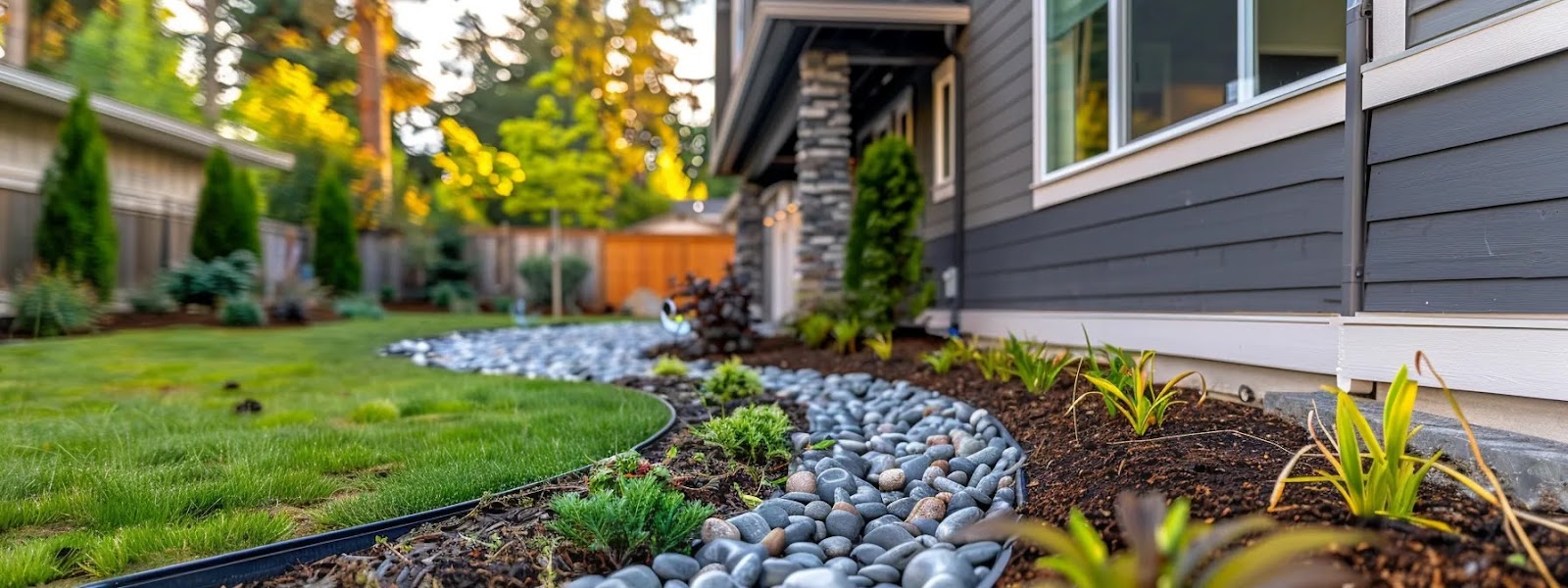
Effective solutions can mitigate foundation damage caused by poor drainage. This section explores techniques such as yard grading, installing French drains, and managing downspouts. It also covers gutter maintenance, natural drainage methods, sump pump installation, and prompt crack repair. Homeowners can reduce the risk of basement water issues and potential insurance claims by implementing these strategies. For expert assistance, contact us to discuss tailored irrigation and drainage solutions.
Implementing Yard Grading Techniques for Better Drainage
Proper yard grading techniques play a crucial role in protecting foundations from water damage. Landscapers create a gentle slope away from the house, ensuring water flows towards designated drainage areas. This grading process often involves adding soil near the foundation and creating a swale to channel water away effectively.
Regular maintenance of gutters and downspouts complements yard grading efforts. Homeowners should clean gutters regularly to prevent overflow and ensure downspouts direct water at least 5 feet away from the foundation. For added protection, installing underground drainage pipes can carry water even further from the house, reducing the risk of foundation issues and mold growth:
- Create a gentle slope away from the house
- Construct swales to channel water
- Maintain clean gutters and functional downspouts
- Install underground drainage pipes
- Regularly inspect for proper water flow
Installing Effective Drainage Systems Like French Drains
French drains offer an effective solution for managing excess water around foundations. These systems consist of perforated pipes surrounded by gravel, which collect and redirect water away from the home. In Huntsville, AL, hardscaping experts often incorporate French drains into landscape designs to protect foundations from water damage and prevent crawl space issues.
Installing a French drain requires careful planning and execution. Professionals excavate a trench, line it with landscape fabric to prevent debris infiltration, and lay the perforated pipe at a slight angle to ensure proper water flow. This system effectively manages surface water and subsurface drainage, helping to fix foundation cracks and reduce the need for crawl space encapsulation:
- Excavate a trench around the foundation
- Line the trench with landscape fabric
- Install perforated pipe at a slight angle
- Surround pipe with gravel for filtration
- Connect to a designated drainage area or storm sewer
Ensuring Proper Downspout Management
Proper downspout management is crucial for protecting home foundations from drainage problems. In Huntsville, effective drainage solutions include extending downspouts at least 5 feet away from the house and using underground pipes to direct water to a suitable drainage area. These measures prevent water from pooling near the foundation, reducing the risk of structural damage and potential warranty issues.
Homeowners should regularly inspect and clean their downspouts to ensure optimal performance. Installing splash blocks or downspout extensions can further improve water distribution, preventing erosion and soil saturation near the foundation. For complex drainage issues, professional assessment may be necessary to develop a comprehensive solution that addresses specific home foundation concerns:
- Extend downspouts at least 5 feet from the house
- Use underground pipes for water redirection
- Install splash blocks or downspout extensions
- Regularly inspect and clean downspouts
- Seek professional assessment for complex issues
Maintaining Gutters to Prevent Water Accumulation
Regular gutter maintenance is crucial for preventing water accumulation and protecting the house foundation from damage. Homeowners should clean gutters at least twice a year, removing debris that can cause clogs and lead to water overflow. This simple task helps direct water away from the foundation, reducing the risk of foundation problems and the need for costly foundation repair.
Proper gutter installation and sizing are essential for effective foundation drainage. Gutters should be pitched correctly to ensure water flows towards downspouts and away from the house. Installing gutter guards can help prevent debris buildup and reduce maintenance needs. For homes with persistent drainage issues, professional assessment may be necessary to develop a comprehensive solution that addresses specific foundation concerns:
Utilizing Swales or Dry Creek Beds for Natural Drainage
Swales and dry creek beds offer natural solutions for managing water flow around home foundations. These landscape features redirect surface water away from the house, preventing seepage and potential foundation issues. By mimicking natural drainage patterns, swales and dry creek beds can effectively channel water to designated areas, reducing the risk of soil erosion and foundation damage.
Integrating swales or dry creek beds into the landscape design requires careful planning to ensure proper slope and water flow. Homeowners should consider consulting with landscaping professionals to create an effective drainage system that complements their property's topography. These natural drainage solutions not only protect the home foundation but also enhance the aesthetic appeal of the outdoor space, potentially increasing property value.
Considering Sump Pumps for Excess Water Removal
Sump pumps offer an effective solution for removing excess water from basements and crawl spaces, protecting foundations from water damage and erosion. These devices automatically activate when water levels rise, pumping out accumulated moisture to prevent flooding and foundation issues. For homeowners in Huntsville, AL, professional landscaping installation can integrate sump pump systems seamlessly into existing drainage solutions.
When considering a sump pump, homeowners should assess their property's specific needs and drainage patterns. Factors such as soil type, water table level, and frequency of heavy rainfall influence the selection of an appropriate sump pump system. Regular maintenance and testing ensure optimal performance, safeguarding the foundation against long-term water damage:
- Evaluate property's drainage patterns
- Choose appropriate sump pump capacity
- Install backup power source
- Conduct regular system maintenance
- Monitor performance during heavy rainfall
Addressing Foundation Cracks Promptly to Prevent Damage
Addressing foundation cracks promptly is crucial for preventing further damage caused by poor drainage. Homeowners should regularly inspect their foundation for signs of moisture intrusion, such as cracks or water stains. Sealing these cracks quickly can prevent water from seeping into the foundation, which could lead to more severe structural issues and compromise the home's health.
Proper drainage solutions, including functional drains and downspouts, play a vital role in preventing foundation cracks. Installing a vapor barrier in crawl spaces can also help manage moisture levels and protect the foundation. Homeowners should consider professional assessment to identify potential drainage issues and develop a comprehensive plan to address them:
Consulting Professionals for Severe Drainage and Foundation Issues
Professional drainage experts offer free estimates to assess severe foundation issues caused by poor drainage. These inspections evaluate surface runoff patterns, identify potential flood risks, and detect signs of mildew or water damage that may compromise foundation integrity.
Certified inspectors use specialized equipment to measure soil moisture levels and assess the effectiveness of existing drainage systems. They can identify areas prone to water accumulation and recommend tailored solutions to prevent further foundation damage.
Experienced professionals develop comprehensive drainage plans that address both immediate concerns and long-term foundation protection. These plans may include installing French drains, regrading the property, or implementing advanced waterproofing techniques to mitigate flood risks.
Consulting with drainage specialists ensures homeowners receive expert guidance on managing surface runoff and preventing mildew growth. Professional intervention can save significant costs by addressing drainage issues before they lead to severe foundation damage or structural instability.
Long-Term Strategies to Protect Your Home From Drainage-Related Foundation Problems

Homeowners can protect their foundations from drainage-related problems by implementing long-term strategies. Proper maintenance of street gutters and drainage systems in Dallas helps prevent water accumulation near homes. Regular inspections of concrete surfaces and foundation walls can identify early signs of damage, allowing for timely repairs.
Installing effective drainage solutions around the property diverts water away from the foundation. This includes proper grading, installing French drains, and maintaining gutters and downspouts. These measures reduce the risk of foundation damage caused by excess moisture in the soil surrounding the home.
Landscaping plays a crucial role in managing drainage and protecting foundations. Strategically placed plants and trees can help absorb excess water, while proper slope management ensures water flows away from the house. Homeowners should avoid planting water-hungry vegetation too close to the foundation to prevent soil moisture fluctuations.
Regular professional inspections of the foundation and drainage systems can catch potential issues early. Experts can assess the effectiveness of existing drainage solutions and recommend improvements if needed. This proactive approach helps prevent costly foundation repairs and ensures the long-term stability of homes in Dallas.
Frequently Asked Questions
How does poor drainage affect a home's foundation?
Poor drainage can lead to water accumulation around a home's foundation, causing soil erosion, hydrostatic pressure, and foundation settling. This can result in cracks, structural damage, and moisture issues inside the house, compromising its stability and value over time.
What are the signs of drainage issues impacting foundation quality?
Drainage issues affecting foundation quality may manifest as cracks in walls or floors, uneven or sloping floors, sticking doors or windows, damp or musty odors, visible water pooling around the foundation, and soil erosion near the house. These signs indicate potential water damage and structural problems.
Can drainage problems cause serious damage to my home's foundation?
Yes, drainage problems can cause serious damage to your home's foundation. Poor water management can lead to soil erosion, hydrostatic pressure, and foundation settling. These issues may result in cracks, leaks, and structural instability, potentially requiring costly repairs if left unaddressed.
What solutions can prevent foundation damage from poor drainage?
Effective solutions to prevent foundation damage from poor drainage include installing French drains, grading the landscape away from the house, maintaining gutters and downspouts, and waterproofing the foundation. Proper landscaping and the use of permeable materials can also help manage water flow and protect the foundation.
When should I consult a professional for drainage and foundation issues?
Consult a professional for drainage and foundation issues when you notice signs like cracks in walls or floors, uneven surfaces, water pooling around your home, or dampness in the basement. Early intervention by experts can prevent costly damage and ensure your property's structural integrity.
Conclusion
Understanding the impact of poor drainage on foundation quality is crucial for homeowners to protect their investment and ensure structural integrity. Proper drainage solutions, including yard grading, French drains, and effective gutter systems, play a vital role in preventing foundation damage caused by excess water and soil movement. Regular inspections, prompt repairs, and professional consultations are essential for identifying and addressing drainage-related issues before they lead to severe foundation problems. By implementing long-term strategies and maintaining effective drainage systems, homeowners can safeguard their foundations, prevent costly repairs, and preserve the stability and value of their homes.
Stay Connected and Inspired
Get the latest landscaping tips, seasonal care guides, and exclusive offers delivered straight to your inbox. Don’t miss out on expert advice and ideas to transform your outdoor spaces.
Sign Up for Our Newsletter Today!


Your Next Idea Awaits
Stay inspired with our latest landscaping tips and trends.
.webp)
.webp)

.webp)
.webp)
.webp)
.webp)
.webp)

.webp)



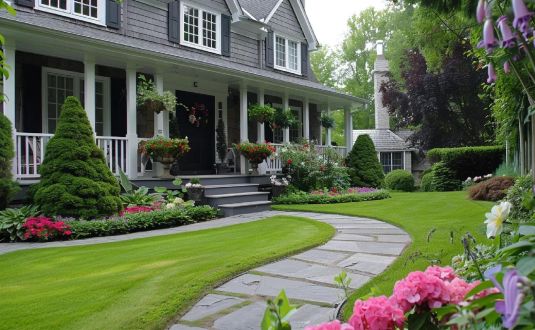

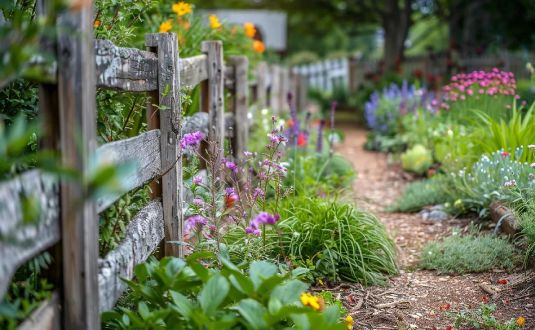
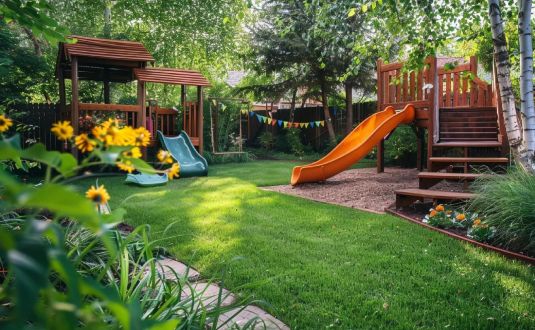

.webp)
.webp)





